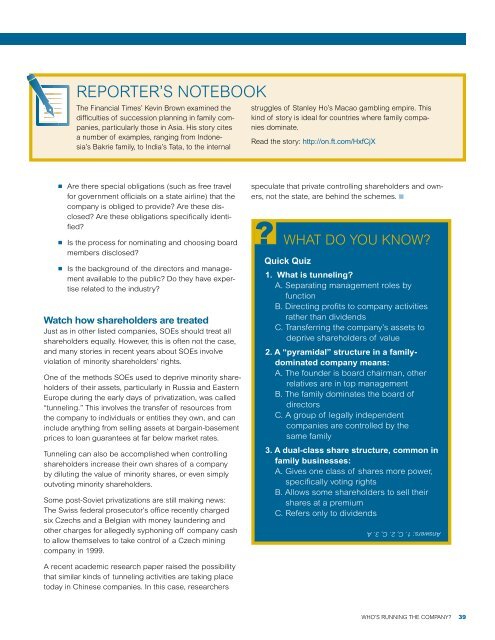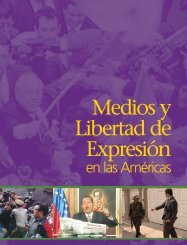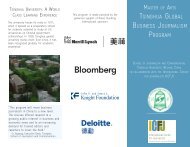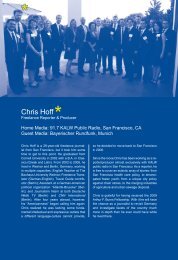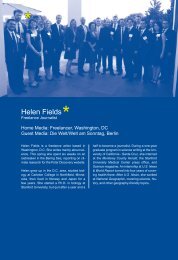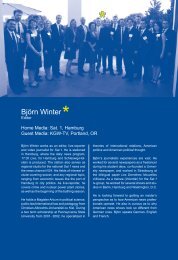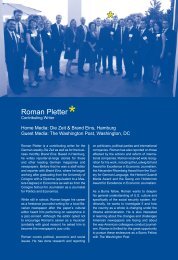Who's Running the Company? - International Center for Journalists
Who's Running the Company? - International Center for Journalists
Who's Running the Company? - International Center for Journalists
You also want an ePaper? Increase the reach of your titles
YUMPU automatically turns print PDFs into web optimized ePapers that Google loves.
REPORTER’S NOTEBOOK<br />
The Financial Times’ Kevin Brown examined <strong>the</strong><br />
difficulties of succession planning in family companies,<br />
particularly those in Asia. His story cites<br />
a number of examples, ranging from Indonesia’s<br />
Bakrie family, to India’s Tata, to <strong>the</strong> internal<br />
struggles of Stanley Ho’s Macao gambling empire. This<br />
kind of story is ideal <strong>for</strong> countries where family companies<br />
dominate.<br />
Read <strong>the</strong> story: http://on.ft.com/HxfCjX<br />
n Are <strong>the</strong>re special obligations (such as free travel<br />
<strong>for</strong> government officials on a state airline) that <strong>the</strong><br />
company is obliged to provide? Are <strong>the</strong>se disclosed?<br />
Are <strong>the</strong>se obligations specifically identified?<br />
n Is <strong>the</strong> process <strong>for</strong> nominating and choosing board<br />
members disclosed?<br />
n Is <strong>the</strong> background of <strong>the</strong> directors and management<br />
available to <strong>the</strong> public? Do <strong>the</strong>y have expertise<br />
related to <strong>the</strong> industry?<br />
Watch how shareholders are treated<br />
Just as in o<strong>the</strong>r listed companies, SOEs should treat all<br />
shareholders equally. However, this is often not <strong>the</strong> case,<br />
and many stories in recent years about SOEs involve<br />
violation of minority shareholders’ rights.<br />
One of <strong>the</strong> methods SOEs used to deprive minority shareholders<br />
of <strong>the</strong>ir assets, particularly in Russia and Eastern<br />
Europe during <strong>the</strong> early days of privatization, was called<br />
“tunneling.” This involves <strong>the</strong> transfer of resources from<br />
<strong>the</strong> company to individuals or entities <strong>the</strong>y own, and can<br />
include anything from selling assets at bargain-basement<br />
prices to loan guarantees at far below market rates.<br />
Tunneling can also be accomplished when controlling<br />
shareholders increase <strong>the</strong>ir own shares of a company<br />
by diluting <strong>the</strong> value of minority shares, or even simply<br />
outvoting minority shareholders.<br />
Some post-Soviet privatizations are still making news:<br />
The Swiss federal prosecutor’s office recently charged<br />
six Czechs and a Belgian with money laundering and<br />
o<strong>the</strong>r charges <strong>for</strong> allegedly syphoning off company cash<br />
to allow <strong>the</strong>mselves to take control of a Czech mining<br />
company in 1999.<br />
speculate that private controlling shareholders and owners,<br />
not <strong>the</strong> state, are behind <strong>the</strong> schemes. n<br />
?<br />
WHAT DO YOU KNOW?<br />
Quick Quiz<br />
1. What is tunneling?<br />
A. Separating management roles by<br />
function<br />
B. Directing profits to company activities<br />
ra<strong>the</strong>r than dividends<br />
C. Transferring <strong>the</strong> company’s assets to<br />
deprive shareholders of value<br />
2. A “pyramidal” structure in a familydominated<br />
company means:<br />
A. The founder is board chairman, o<strong>the</strong>r<br />
relatives are in top management<br />
B. The family dominates <strong>the</strong> board of<br />
directors<br />
C. A group of legally independent<br />
companies are controlled by <strong>the</strong><br />
same family<br />
3. A dual-class share structure, common in<br />
family businesses:<br />
A. Gives one class of shares more power,<br />
specifically voting rights<br />
B. Allows some shareholders to sell <strong>the</strong>ir<br />
shares at a premium<br />
C. Refers only to dividends<br />
Answers: 1. C, 2. C, 3. A<br />
A recent academic research paper raised <strong>the</strong> possibility<br />
that similar kinds of tunneling activities are taking place<br />
today in Chinese companies. In this case, researchers<br />
WHO’S RUNNING THE COMPANY?<br />
39


